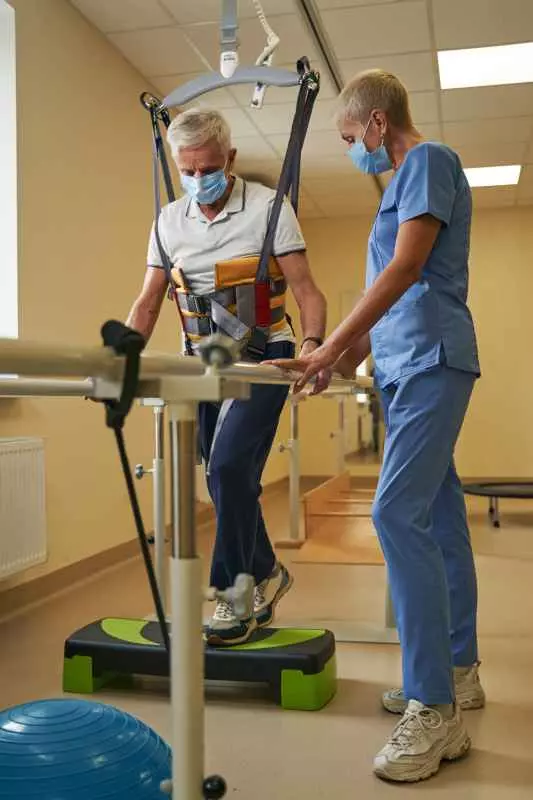Rehabilitation of patients after stroke
Stroke is a serious condition that often leads to permanent neurological damage. Many post-stroke patients experience difficulties in moving, speaking or remembering. In such cases, rehabilitation is extremely important and can significantly improve the patient's quality of life.
What are the most important goals of post-stroke rehabilitation? First of all, to restore lost functions and maximize the potential of the rest of the healthy brain.
The primary tool for post-stroke rehabilitation is physiotherapy. A specialist in this field will work with the patient to improve their motor skills, balance and muscle strength. Exercises may include walking, lifting objects or limb movements.
Speech therapy is also an important part of post-stroke rehabilitation. Patients often experience difficulties with speech and communication after a stroke. A speech therapist will help them improve their pronunciation, language skills and regain their freedom to communicate.
Another indispensable part of post-stroke rehabilitation is occupational therapy. The goal of this form of therapy is to restore the patient's ability to function independently. Therapists work with the patient to improve memory, concentration, planning and organizational skills. In addition, occupational therapy provides patients with opportunities to participate in various activities, which has a positive impact on their mood and self-esteem.

Neurofeedback is also a helpful method of post-stroke rehabilitation. This innovative therapy involves teaching patients self-control over their own brain processes. With neurofeedback training, you can influence improvements in concentration, emotional control and cognitive function.
Let's also remember psychological support. Post-stroke patients often experience depression, frustration or difficulties in accepting their situation. Psychological support is extremely important in the rehabilitation process and helps patients cope with emotional difficulties.
Post-stroke rehabilitation is a long-term and individually tailored process. Many specialists from different fields work together to provide comprehensive care to the patient and guide him or her towards increasing independence and self-reliance.
It is important to regularly perform prescribed exercises and therapies. Many stroke patients experience frustration and reluctance with rehabilitation, but it is regular practice that leads to progress. Rehabilitation is a time-consuming process and requires patience from both the patient and his loved ones.
In conclusion, post-stroke rehabilitation is extremely important for returning to a normal life after this serious illness. Working with a variety of specialists, such as physiotherapists, speech therapists, occupational therapists and psychologists, allows the patient to maximize his or her abilities and improve his or her quality of life.
If you know someone who is experiencing difficulties after a stroke, encourage them to consult their doctor and begin rehabilitation. This is the first step on the road to returning to full fitness and independence.
Add comment